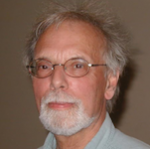One of the new IDM initiatives is a 'Rewiring Team Dynamics' workshop which will be organized as a three day seminar in April 2015, near Brussels/Belgium. The key question is: How can we create groups that can learn from mistakes faster, more efficiently, and more consistently than competitors do?' The background of this question is the simple observation that a lot of groups systematically under-perform. They do not make good decisions and they do not solve complex problems in a collaborative way. Traditional Team Building Traditional team building interventions, which are mainly behaviorally focused, do not seem to work when team members are highly developed (especially when they are knowledge workers). The top interventions advised from a behavioral point of view are: foster constructive debate in meetings push back when consensus forms to quickly use devil's advocate thinking look for competing explanations to challenge your observations get some distance, step away, and then try again in order to recognize and interpret complex data use visual graphs or flowcharts to juxtapose the larger picture with the individual puzzle pieces reframe situations and always examine several more options use impromptu meetings when time is limited to generate more options, including unconventional choices... Read More...
Category: Consulting
From “Developmental Theory” to a Dialogical and Dialectical Epistemology
By Otto Laske - In this text, I focus on the central relevance of interviewing skills for being able to lead a structured developmental dialog in the sense of the Constructive Developmental Framework (CDF), whether social-emotional or cognitive. I want to make it clear that the certification as a Master Developmental Consultant/Coach at the Interdevelopmental Institute (IDM) is not a certification in practicing “developmental theory”, but rather an independent discipline derived from it, namely, a dialogical and dialectical epistemology. Developmental theory per se is taught at IDM only in applied courses which serve as a basis for learning the CDF epistemology, and in this sense are mere teasers for learning to think and listen developmentally, dialogically, and dialectically. What matters is not the theory, but its applications in work with human resources (“human capital”). This has always been the focus of IDM teaching. Abbreviations: CDF = Constructive Developmental Framework (Laske); DCR = Dialectical Critical Realism (Bhaskar); DSF = Dialectical Schema Framework (Basseches); DTF = Dialectical Thought Form Framework (Laske); IDM = Interdevelopmental Institute (Laske). *** When I started writing my two books on Measuring Hidden Dimensions in 2005, it was clear to me that the most progressive part of Kegan’s... Read More...
Otto Laske on his work
An interview by Paul Anwandter Read More...
Review of De Visch’s “Mind(s) Creating Value”
J. De Visch's Leadership-- Mind(s) Creating Value J. De Visch's Leadership-- Mind(s) Creating Value Jan DeVisch continues to plow the depth of dialectical thinking to restructure and refine corporate conversations. This writer is excellently prepared for the task, since his professional career has long been focused on issues of global concern both for and regarding large organizations. Read More...
How I use CDF in executive selection and development
This article describes three practical uses of CDF in organisational consulting. The author acts a coach, mentor, and consultant to a variety of private and public sector clients. How I use CDF – Nick Shannon Read More...
